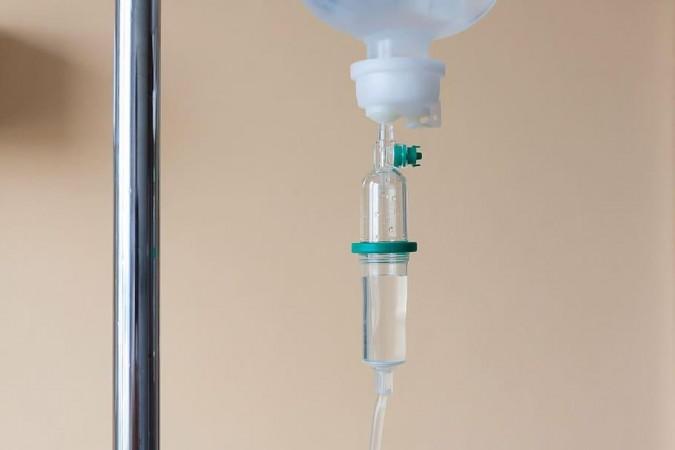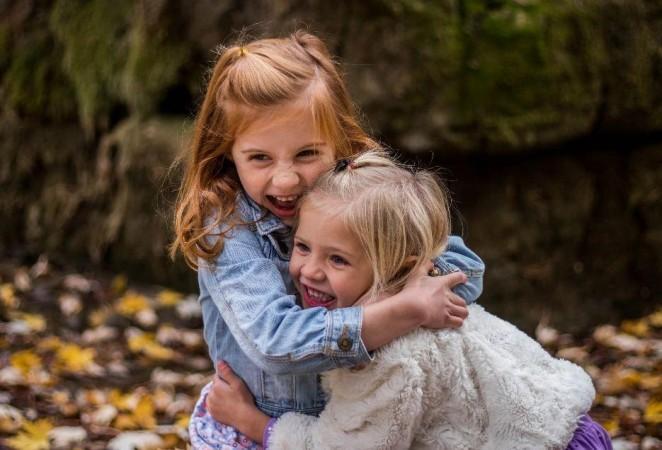Chemotherapy drugs have given millions of cancer patients across the world hope for a better living. Not only have they helped improve longevity among adult patients but also provided child patients a fighting chance at life. However, certain drugs can lead to undesirable side effects, including hearing loss (ototoxicity). Now, a new study has found that a commonly used chemotherapy drug leads to a greater risk of hearing loss among very young children.
According to an international team of researchers, treatment with chemotherapy drug cisplatin impacts the hearing of very young children (below five years of age) during early treatment. They also learnt that the cisplatin-induced hearing loss (CIHL) among these children was greater when compared to older children (above five years of age).
"In young children, the cumulative incidence of CIHL is higher compared with that in older children and develops early during therapy. The course of CIHL is further influenced by the total cumulative dose of cisplatin and other ototoxic (co-)medication," the authors wrote. The study was published in the journal CANCER.
Used to Treat a Wide Variety of Cancers

Cisplatin is an anti-cancer (or cytotoxic) platinum-based chemotherapy drug. It is used alone, or in combination with other drugs, for the treatment of several types of cancer such as sarcomas, melanomas, lymphomas, and germ cell tumors, among others. Some of the cancers treated with cisplatin include advanced bladder cancer, metastatic ovarian cancer, metastatic testicular cancer, esophageal cancer, cervical cancer, and small cell lung cancer, among others.
However, the intravenously administered drug comes with its own set of side effects in some patients. These include an increased chance of infection (owing to reduced levels of white blood cells), anaemia (on account of diminished levels of red bleed cells), kidney toxicity, change in taste, and ototoxicity, among others.
Though effective in treating child patients, Cisplatin can cause permanent hearing loss in them. Previous studies have demonstrated that among children treated with cisplatin, up to 60 percent suffer from loss of hearing. Through the current study, the authors aimed to examine the course of hearing loss brought on by the drug.
Younger Children at Greatest Risk

For the study, the scientists analyzed data collected from 368 childhood cancer patients from Canada who had received cisplatin treatment. The patients had undergone 2,052 audiological assessments in total. Importantly, the use of cisplatin had ceased within three years after the beginning of therapy using the drug.
The team's evaluation revealed that three years following the commencement of treatment, 75 percent of children who were five years of age or younger, and 48 percent patients above the age of five, had suffered CIHL. Among patients who were five years old or younger, 27 percent and 61 percent had experienced cisplatin-related hearing loss at three months and one year following initiation of treatment, respectively.
Need for Continuous Audiological Assessment

It was also found that CIHL was aggravated by certain factors over time. They were a higher total dose of cisplatin at three months, the co-prescriptions of vincristine—another chemotherapy drug—and an extended duration (more than thirty days) of simultaneous antibiotics administration.
However, the researchers stated that there is still uncertainty surrounding the fundamental mechanisms that can explain the increased prevalence of cisplatin-related hearing loss among child patients. They posit that it is likely that the developing structures within their ears may be more vulnerable to cisplatin's toxic effects.
"Audiological monitoring at each cycle of cisplatin treatment will allow research to advance more quickly to find the mechanistic basis of why younger children are more vulnerable to hearing loss and how best to protect hearing while being given this life-saving therapy," stressed Dr. Bruce Carleton, co-lead author of the study, in a statement.











!['He is done with the team now' : Angry Virat Kohli slams the bat, kicks the ground, yells at RCB team as SRH smashes runs [reactions]](https://data1.ibtimes.co.in/en/full/796956/he-done-team-now-angry-virat-kohli-slams-bat-kicks-ground-yells-rcb-team-srh-smashes.jpg?w=220&h=138)





